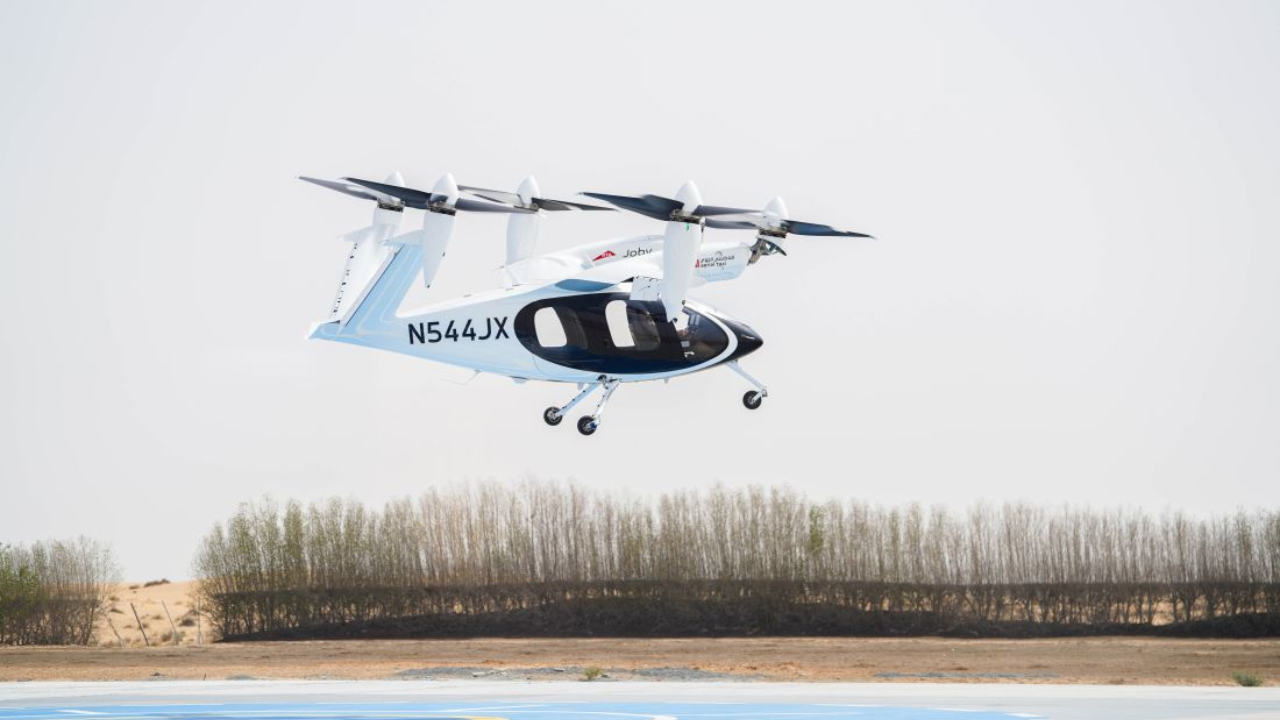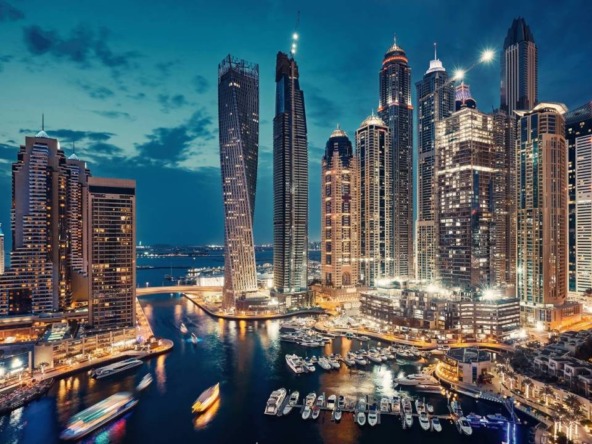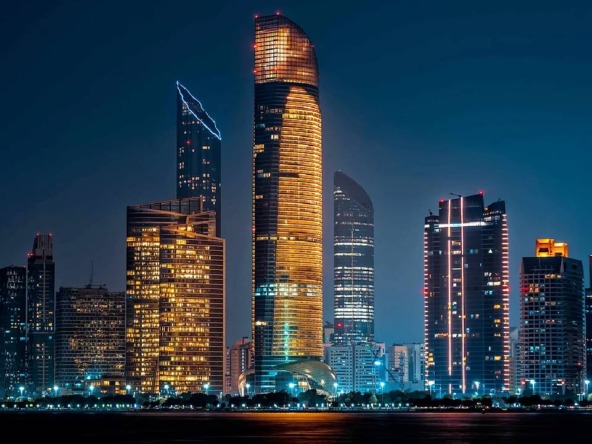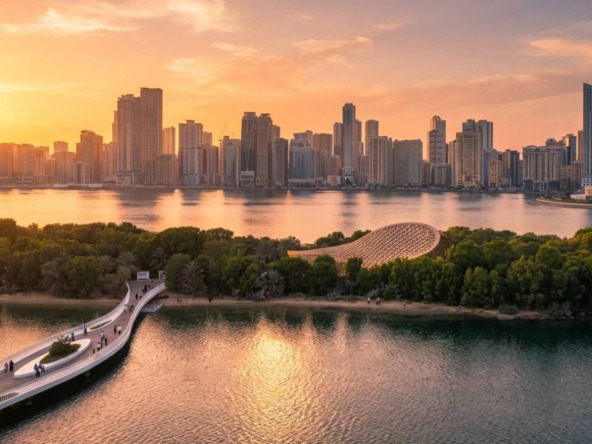A New Era of Transportation
What is an Air Taxi?
Imagine skipping traffic, soaring silently above congested roads, and landing minutes later at your destination. That’s exactly what an air taxi offers. These aren’t sci-fi dreams anymore — air taxis are real, electric-powered, and set to change how we travel in cities.
Why eVTOL is a Game-Changer
eVTOL stands for electric Vertical Take-Off and Landing. Unlike helicopters, they’re quieter, cleaner, and powered entirely by electricity. Think of them as electric drones — but large enough for humans and far more advanced.
The Big Moment — Dubai’s First Test Flight
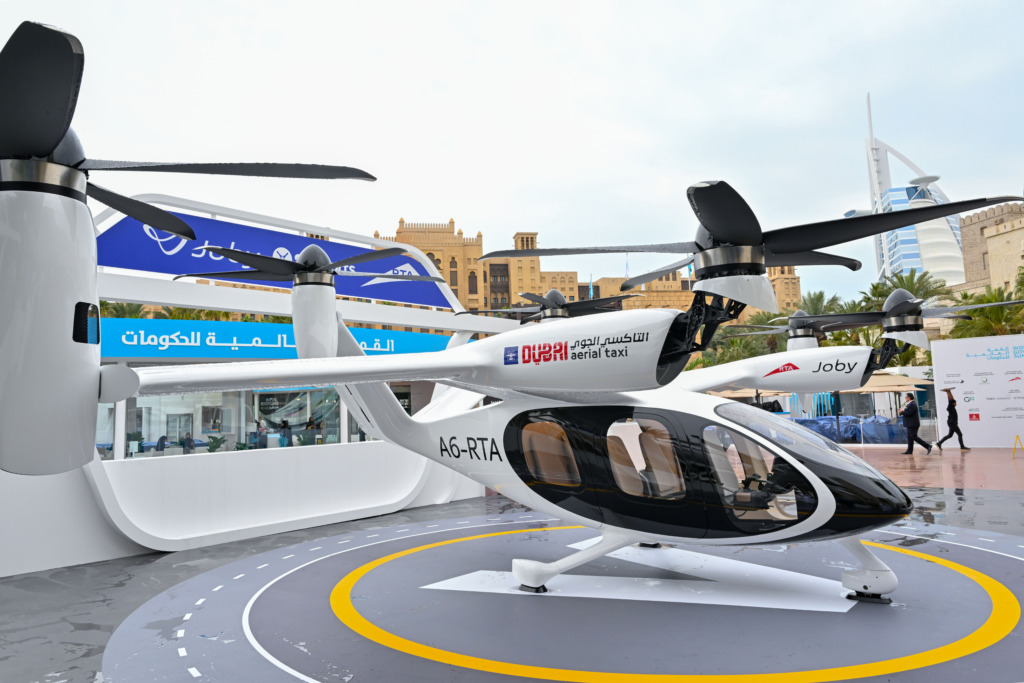
Who’s Behind the Innovation?
This historic flight was powered by a partnership between Joby Aviation, a California-based aerospace company, and Dubai’s Roads and Transport Authority (RTA). It’s more than a demo — it’s a serious commitment to reshape Dubai’s future.
Key Features of the Air Taxi
- Top Speed: 320 km/h
- Range: 160 km
- Capacity: Up to 4 passengers
- Noise: Whisper-quiet operations
- Power: 100% electric
A Closer Look at the Test Flight
The test took place in the desert — but this was no mirage. The aircraft lifted off vertically, hovered silently, and landed smoothly. It proved its ability to operate in Dubai’s climate, handling heat and sand with ease.
Why This Matters for Dubai
Tackling Traffic Like Never Before
Anyone who’s driven through Dubai knows the traffic can be intense. Air taxis will offer a direct way to leap over bottlenecks — literally.
Slashing Travel Time Across the City
That 45-minute drive from DXB to Palm Jumeirah? Cut to just 12 minutes. It’s not just about speed — it’s about time reclaimed for families, work, and leisure.
Connecting Key Landmarks Faster
Vertiports will be built near airports, business districts, and tourist hotspots. Whether you’re commuting to work or heading to Burj Khalifa, the skies are your shortcut.
The Eco-Friendly Future of Urban Mobility
Zero Emissions, Zero Compromise
These air taxis are all-electric, making them perfect for a city aiming to lead in sustainability. No fumes. No fossil fuels.
The Sound of Silence: Quiet Flights
Forget the roar of helicopters. These aircraft take off and land with a sound quieter than a dishwasher. No more noise pollution — even above busy areas.
Energy Efficiency in the Desert
Joby’s aircraft are designed to be ultra-efficient, even in Dubai’s hot, dry climate. Renewable energy could even power future flights.
Strategic Plans and Vision for 2026
Launching Commercial Operations
By 2026, Dubai plans to make air taxis available for commercial use. That’s just around the corner — and plans are already in motion.
Building the Vertiport Network
The city will install multiple vertiports, specially designed landing hubs for air taxis. These will be placed in high-demand zones to optimize traffic flow.
Integration with Dubai’s Transport Ecosystem
Air taxis won’t replace metros or taxis — they’ll complement them. Think of it as adding an express sky-lane to the current system.
The Global Impact of Dubai’s Bold Move
Setting a Worldwide Standard
Once again, Dubai’s proving it’s not afraid to lead. This isn’t just about one city — it’s a signal to the world: the future of transport is up in the air.
Joby Aviation’s Global Ambitions
Joby isn’t stopping at Dubai. With the UAE as a launchpad, expect to see similar services in the U.S., Europe, and Asia.
A Blueprint for Smart Cities
Dubai’s move creates a real-life case study for other cities aiming to build smart, sustainable transport systems. The ripple effect will be global.
Leadership Speaks: What Dubai’s Visionaries Are Saying
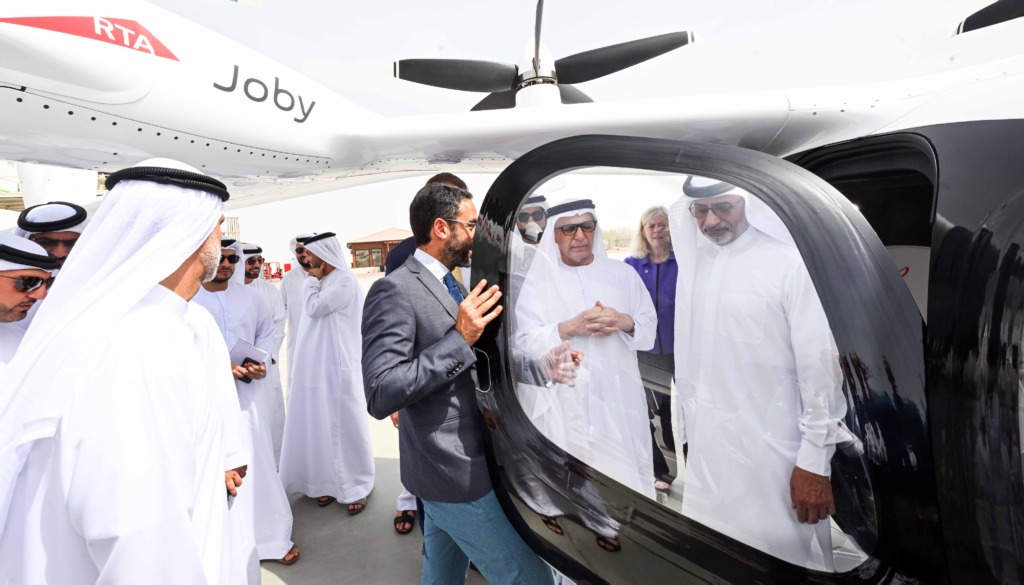
Crown Prince Sheikh Hamdan’s Statement
Sheikh Hamdan called the test a “groundbreaking step” toward enhancing life in Dubai, reducing traffic, and building a greener future. He emphasized Dubai’s role as a global leader in smart transportation.
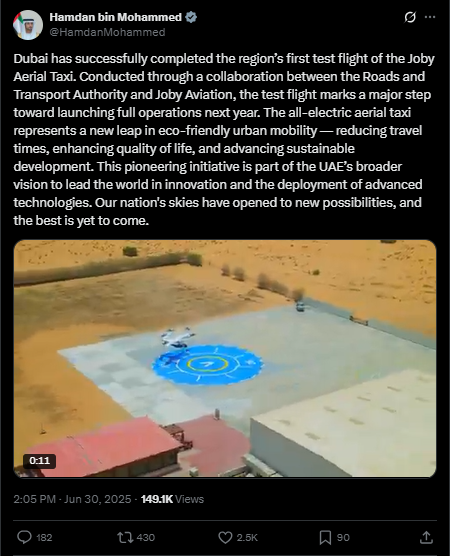
Mattar Al Tayer and RTA’s Perspective
The RTA sees this initiative as central to Dubai Economic Agenda D33, positioning Dubai at the forefront of futuristic mobility.
Joby Aviation CEO’s Insight
JoeBen Bevirt, CEO of Joby, believes this is just the beginning of a transportation revolution. “Dubai is leading the way for the rest of the world,” he said.
The Road Ahead
Timeline Toward 2026
- 2024: Final trials and testing
- 2025: Regulatory approvals and vertiport construction
- 2026: Public launch
Expected Challenges and Solutions
From airspace regulations to public trust, hurdles exist. But Dubai has already shown the ability to overcome such challenges with tech-backed planning.
Community Readiness and Public Reception
Public enthusiasm is strong. Many Dubai residents are excited about flying to work in style — and avoiding Sheikh Zayed Road traffic.
Conclusion
Dubai’s air taxis aren’t just a flashy project — they’re the beginning of a new way of life. With eco-friendly tech, city-wide convenience, and visionary leadership, Dubai is redefining how we think about urban mobility. It’s no longer a question of “if” — it’s “when,” and that answer is: soon.
FAQs
1. What is the maximum speed and range of Dubai’s air taxis?
They can reach speeds up to 320 km/h and cover a distance of 160 km on a full charge.
2. When will air taxis be available to the public in Dubai?
Dubai plans to roll out commercial air taxi operations by 2026.
3. How are air taxis different from helicopters?
Air taxis are quieter, fully electric, and designed for urban transport, unlike helicopters which are noisier and use fossil fuels.
4. Will air taxis be affordable for regular people?
Initially, pricing may be premium, but as infrastructure and demand grow, costs are expected to decrease, making it accessible to more people.
5. Are other cities planning similar services?
Yes. Cities like Los Angeles, Singapore, and Paris are exploring eVTOLs, but Dubai is currently leading in real-world implementation.

